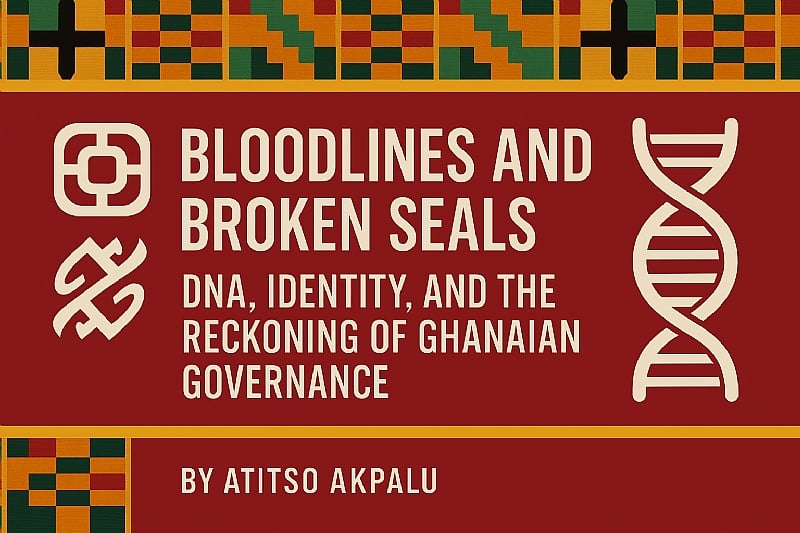🇬🇭 I. When Blood Speaks Louder Than Name
In Ghana’s corridors of heritage and power, lineage is currency. But today, DNA testing threatens to bankrupt the myths we’ve long held sacred. No longer whispered behind palace walls, revelations about false inheritances and disputed chieftaincies now echo across courtrooms and community halls.
“Truth is not an enemy of tradition—it is its compass.”
— Nana Kwame Agyare II, Paramount Chief of Nkoranza Traditional Area
This article isn’t about scandal—it’s about accountability. As genetic science cracks open closed chapters, leadership must confront a legacy shaped by both ancestry and transparency.
🧵 II. Adinkra, Alleles, and the Architecture of Truth
Traditional symbols like Eban and Nkyinkyim remind us that protection and transformation are central to Ghanaian wisdom. DNA, in its helix of humanity, is a modern emblem of accountability—one that exposes both deception and resilience.
Just as Adinkra patterns adorn cloth with moral meaning, DNA strands reveal truths that are invisible yet undeniable.
“Genes may not carry wisdom, but they do carry truth. Let tradition be guided, not undermined.”
— Prof. Efua Mensimah Adusei, Geneticist, University of Ghana Medical School
By connecting the ethics of inheritance with the science of biology, we invite a broader understanding of what it means to lead with legitimacy.
👥 III. The Broken Staff: A Fiction Rooted in Reality
Kojo Anane was raised to rule. As heir to the revered Asenemaso Stool, his grooming included sacred rites and civic mentorship. But a new council regulation—requiring DNA verification for leadership succession—shattered that legacy.
The test revealed no biological link to the former chief. A storm erupted: some elders cited ritual adoption, others demanded abdication. Kojo’s plea was simple:
“I have served the people faithfully. If legacy is not in my blood, let it be in my deeds.”
— Kojo Anane, fictional character
Kojo’s case forces us to define leadership not just by lineage, but by impact. Can blood alone justify authority, or must public trust now be earned through action and accountability?
📜 IV. Forging a Framework: Tradition Meets Biotech
I propose the Cultural Legitimacy and Verification Council (CLVC)—an intergenerational taskforce of chiefs, ethicists, and geneticists. Their role: uphold sacred rites and institute ethical truth-testing for succession, adoption, and leadership validation.
Kente borders and ceremonial titles must now be adorned with biometric clarity. Ghana can lead Africa in fusing tradition with transparency.
💡“If you fear the microscope, you fear accountability. Let sacred stools be grounded not just in myth but in measurable truth.”
— Dr. Mensah Owusu-Boampong, Bioethics Scholar
🌍 V. Conclusion: The Double Helix of Hope and Honor
Our symbols and rituals must evolve, not erode. Let DNA revelations refine—not erase—our heritage. Leadership today must pass through two gates: ancestral honor and verified legitimacy.
In Kojo Anane’s story and others like it, Ghana stands not at the edge of scandal, but on the brink of reinvention. Let the seal of truth be stamped alongside the seal of heritage.🌊
Retired Senior Citizen
Teshie-Nungua
[email protected]


